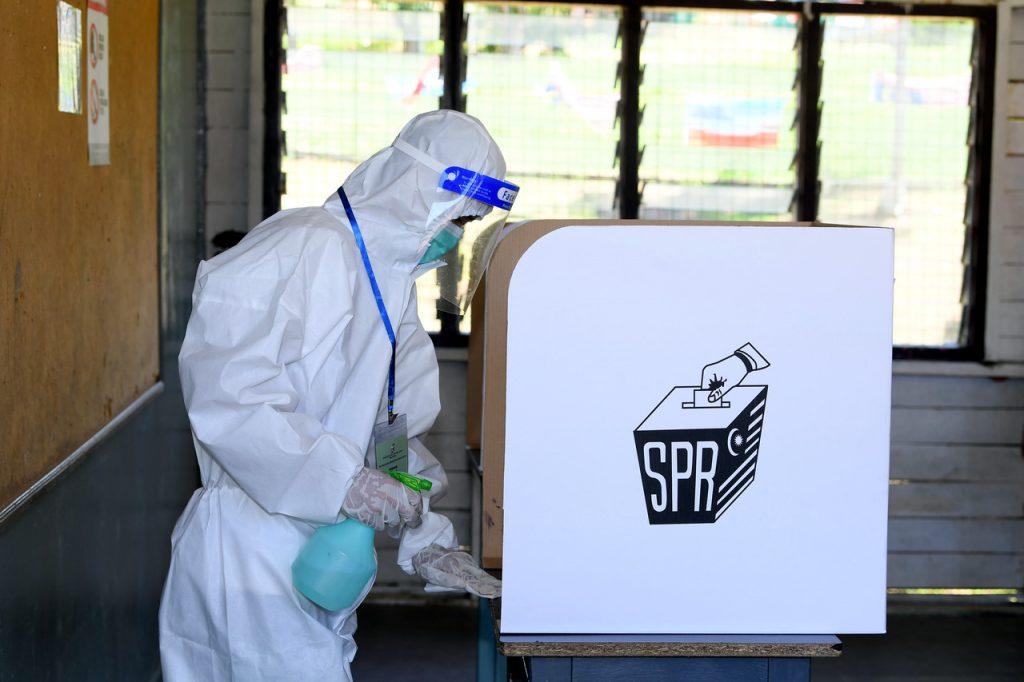Health experts expect jump in Covid-19 cases after Melaka polls
But they say the infection wave will not be as big as the ones that came before, due to awareness about SOPs and the high vaccination rate.
Just In
Health experts are expecting a new wave of Covid-19 infections following the Melaka state election slated to be held on Nov 20.
However, they said the situation is different from that of the Sabah election last year as no vaccines for Covid-19 were available at the time.
Dr Sazaly Abu Bakar, director of the Tropical Infectious Diseases Research and Education Centre, said while the Melaka polls might trigger a new cluster, it would not be as widespread as the ones before.
“The level of vaccination and the SOP awareness are higher for the Melaka election than they were for the Sabah polls,” he told MalaysiaNow.
The election in Melaka was triggered after four state assemblymen withdrew their support for the chief minister.
The campaign period will run for 12 days from Nov 8.
“The level of vaccination and the SOP awareness are higher for the Melaka election than they were for the Sabah polls.”
Dr Yahya Mat Arip, a virologist from Universiti Sains Malaysia (USM), said the Melaka election would be the first field test in the post-vaccination era.
He said it would test the level of public awareness about Covid-19 preventive measures.
“I would not be surprised if there is an increase in cases after the Melaka polls, as happened with the previous state election,” he said.
“Perhaps the number of cases in Category Three, Four and Five will not be as many as before given the high vaccination rate in the country.
“But we need to remember that there are some who have yet to be vaccinated, including children below the age of 12 and a number of teenagers and adults who are still refusing to be jabbed. These are the groups of concern.”
Dr Muhammad Amir Yunus, a virologist at USM’s Advanced Medical and Dental Institute, believes that Malaysia’s experience in dealing with previous Covid-19 spikes will have prepared the authorities ahead of the Melaka polls.
However, he suggested that the election be postponed as allowed under the Federal Constitution.
“If we want to hold an election, we can take into account the maximum period of time for the postponement of polls,” he said.
“Otherwise, look at the data and number of cases in the polls location. I am sure that the National Security Council will look into all these details before arriving at a decision.”
He also urged the authorities to take into consideration the capacity of hospitals as part of preparations for a possible increase in number of cases.
Likewise, he said thought should be given to the legal action to be taken against political parties which fail to adhere to the SOPs for campaigning.
On the implementation of SOPs, former Electoral Reform Committee chairman Abdul Rashid Abdul Rahman said there is no need to follow the example of Singapore which held its general election last year.
Speaking to MalaysiaNow, he said the SOPs for voting used at the Sabah polls would be enough.
He said the spread of Covid-19 during the Sabah election appeared to have been sparked by a lack of attention to SOPs, including by politicians and especially during the campaign period.
“Campaigning is an important element in a democracy to help ensure that the people know the candidate looking to represent them.”
“I was there for the Sabah election,” he said. “The SOPs on voting day were good enough and most people followed the rules that were put in place.
“The problem was campaigning. They gathered in cramped and enclosed areas such as coffee shops and this caused the spread of Covid-19.”
He said the best approach for political parties would be a hybrid strategy in which candidates or parties campaign on digital platforms as well as face-to-face with a cap on attendance.
“Campaigning is an important element in a democracy to help ensure that the people know the candidate looking to represent them.
“The difference with Singapore is, Malaysia has a lot of areas in the interior. I’m afraid that if campaigning is done on a purely digital platform, voters will not really know who their candidates are, especially if new faces are involved,” he said.
Rashid said he saw no issue if candidates or political parties visit voters from house to house, adding however that this should be done in small groups and in line with strict SOPs.
“There’s no point if the authorities are on-site as they wouldn’t be able to control the situation either if too many people are there.”
Subscribe to our newsletter
To be updated with all the latest news and analyses daily.
